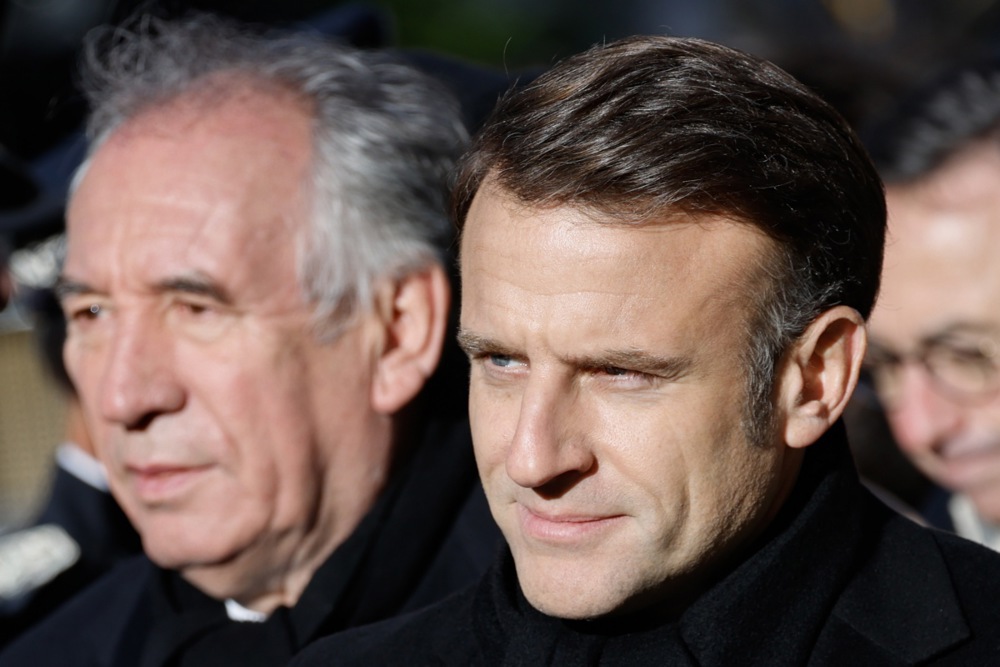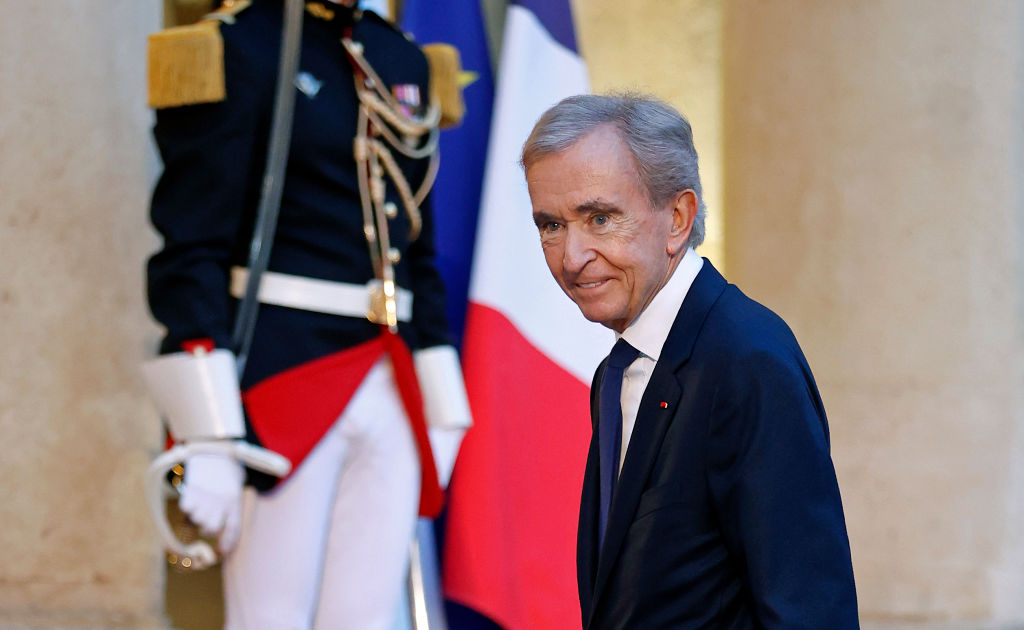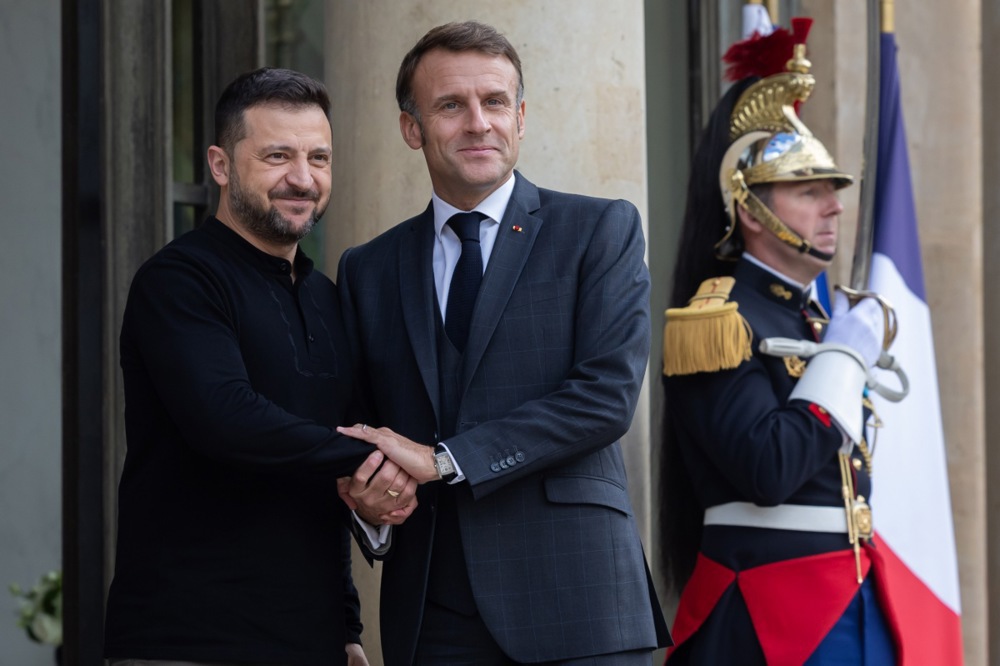French President Emmanuel Macron has called on Europe to abandon its current fiscal and monetary framework, which he described as “obsolete”.
His remarks came as France has been struggling to balance its budget and rein in excessive debt.
In an interview with the Financial Times on February 13, Macron focused on the implications of US President Donald Trump’s return, calling it an “electroshock” that should push Europe to secure its own future — particularly regarding defence and support for Ukraine.
Trump has suggested he would negotiate a deal with Russian President Vladimir Putin to end the war in Ukraine, bypassing other parties. In response, Macron urged Europe to “muscle up” economically and militarily, advocating for a departure from the European fiscal and monetary rules established in 1992.
Currently, France was subject to an excessive deficit procedure, which could lead to EU sanctions if it fails to bring its deficit back within limits.
Macron warned of the risks facing the bloc, stating: “This is Europe’s moment to accelerate and execute. It has no choice. It is running out of road.”
A panel of French lawmakers have been meeting to thrash out the final text of a much delayed 2025 budget bill that is key to restoring investor confidence over the country’s finances and the government’s survival. https://t.co/eSU1Q5b1oI
— Brussels Signal (@brusselssignal) January 30, 2025
Macron aligned with the Trump administration’s stance that European nations must take responsibility for Ukraine’s security. He argued that shift reflected a broader, long-term reorientation of US foreign policy away from Europe and toward Asia.
He also pointed out that US unilateralism did not begin with Trump, citing former US president Joe Biden’s handling of the AUKUS submarine deal. In 2021, Australia abruptly cancelled a $66 billion (€63.02 billion) contract with France in favour of acquiring nuclear-powered submarines from the US and UK without prior consultation.
Additionally, Macron recalled Biden’s unilateral withdrawal from Afghanistan.
“What Trump is saying to Europe is that it is up to you to carry the burden. And I say, it is up to us to take it on,” Macron asserted.
Regarding Trump’s proposal for a US-Russia negotiated peace deal on Ukraine, Macron said he was “not surprised”, describing the US President as an “element of strategic disruption”.
He suggested that Trump’s stance created a “window of opportunity” for negotiations but did not elaborate on the possibility of allied troops acting as peacekeepers in Ukraine.
“We have to do things that are appropriate, realistic, well thought out, measured, and negotiated,” he said.
Macron argued that Trump’s return highlighted “extreme strategic uncertainty”, which required a fundamental rethink of how the European Union and its member states operated.
“It is an electroshock. We need asymmetric shocks, we need external shocks. It is an exogenous shock for Europeans.”
EU auditors have scolded the bloc's spiralling error rate in spending amid EU debt of €458.5 billion.
While the allowable threshold is 2 per cent, the error rate has risen to almost three times this number. According to the European Court of Auditors, that error rate related to… pic.twitter.com/YMqpJKpQLN
— Brussels Signal (@brusselssignal) October 11, 2024
For those in Europe who still believed in a model of “strategic dependency”, Macron issued a stark warning: “The idea that we can rely on the Chinese market for exports, the American security umbrella and cheap Russian gas — forget all three.”
On defence, he said Europe must build its capabilities so it could act “even when the US is not involved”.
He pointed to the Franco-Italian SAMP/T air defence system as an alternative to the US-made Patriot system, which is currently used by several EU nations.
“We must also develop a fully integrated European defence, industrial and technological base,” Macron said.
“This goes far beyond a simple debate about spending figures. If all we do is become even bigger clients of the US, then in 20 years, we still won’t have solved the question of European sovereignty.”
To boost defence spending, Macron called for “innovative financing solutions”, including increased common EU borrowing— an idea opposed by fiscally Conservative countries including Germany.
He also urged Europe to scrap deficit caps under the EU’s Growth and Stability Pact, which required member states to keep deficits below 3 per cent of GDP, something France has been chronically struggling with.
“It is obsolete,” he said.
“The financial and monetary framework we live in is outdated” and “Europe is under-leveraged”, Macron said.
He also called for the rollback of “burdensome” EU regulations such as the bloc’s corporate sustainability reporting directive and of looming fines on carmakers that had not met electric vehicle quotas, penalties he called “crazy”.
Additionally, Macron warned against imposing stricter capital requirements on European banks, cautioning that to do so could stifle economic growth.
COMMENT: In a world demanding reliable and affordable energy, Europe can't afford to be held hostage by outdated regulations. It must embrace smart policies that empower its industrious spirit and unlock a sustainable energy future, writes @Raphfel. https://t.co/9Ua7kkzCgc
— Brussels Signal (@brusselssignal) October 4, 2024





